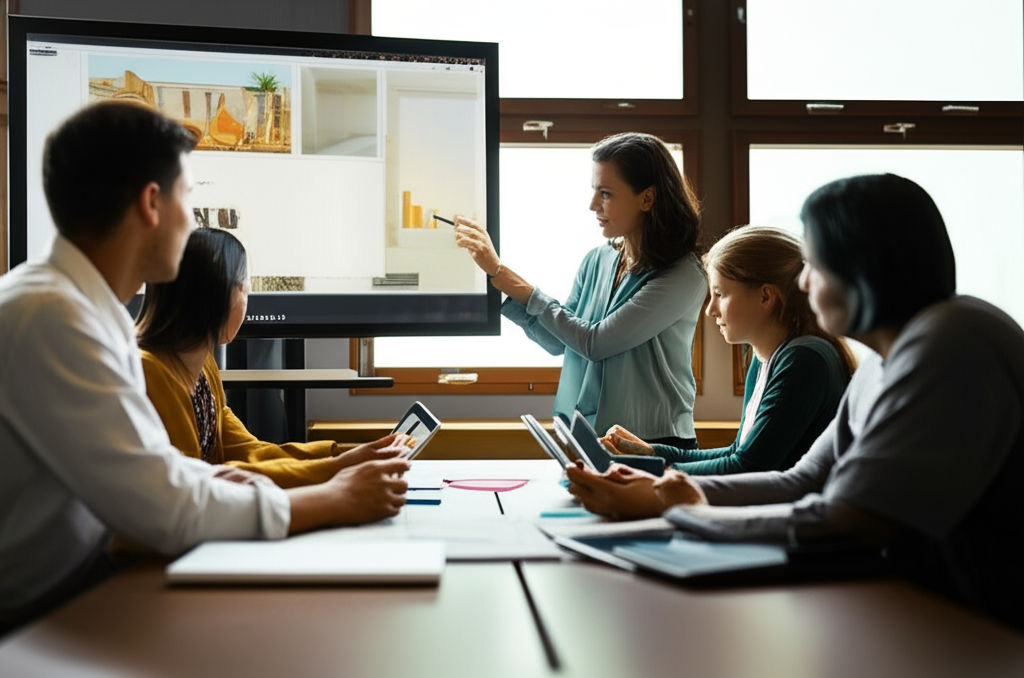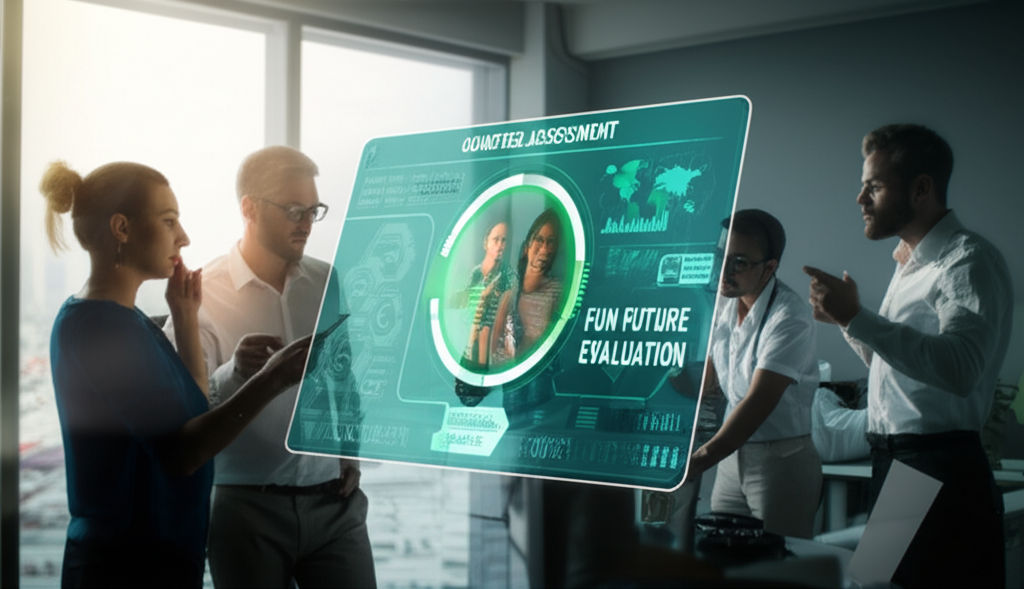Educators' Role in Future Learning
Emily Willis
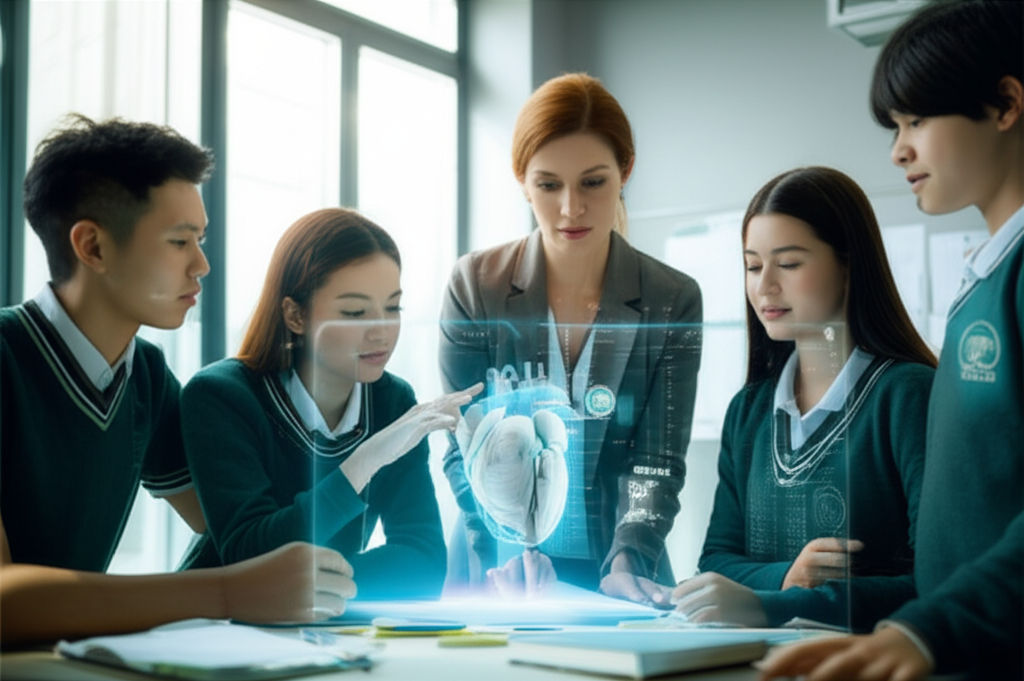
Photo: Educators' Role in Future Learning
The Evolving Heart of Education: Embracing the Educator's Role in Future Learning
The world is changing at an unprecedented pace, and with it, the landscape of learning. From the rise of digital technologies like AI to the increasing demand for 21st-century skills, education is undergoing a profound transformation. In this dynamic environment, the role of educators is not diminishing; rather, it's evolving into something even more crucial and multifaceted. No longer just "knowledge givers," teachers are becoming "learning architects" who guide, inspire, and empower students to navigate a complex future.
This shift in the educator's role is not merely a trend; it's a fundamental necessity for preparing students for a world that demands adaptability, critical thinking, and social-emotional intelligence. Let's explore how educators are stepping up to this challenge and what it means for the future of learning.
The Shifting Sands of Learning: Why Change is Essential
For generations, the traditional classroom model revolved around the teacher as the primary source of information, delivering content to a relatively passive audience. However, the sheer volume of accessible information today, thanks to the internet and digital tools, has rendered this model increasingly insufficient. Students no longer need teachers simply to give them information; they need guides to help them make sense of it.
From Information Givers to Learning Facilitators
The future of education sees educators moving beyond being just knowledge providers to becoming facilitators of learning. This means creating environments where students are actively engaged in constructing their own understanding. Instead of simply lecturing, educators are designing experiences that encourage exploration, discovery, and deeper engagement with subjects. This shift allows students to take more ownership of their learning, becoming decision-makers in their educational journey.
The Impact of Technology: Beyond the Classroom Walls
Technology's impact on education is undeniable, transforming everything from how we access resources to how we interact and learn. Online learning platforms, virtual reality (VR), augmented reality (AR), and artificial intelligence (AI) are rapidly changing the educational landscape. While these tools offer incredible opportunities for personalized and immersive learning, they also necessitate a new set of skills from educators. Teachers need to be adept at leveraging these technologies to enhance learning experiences, not just as a crisis-management tool, but as a powerful part of everyday instruction.
Key Roles Educators Will Play in Future Learning
The evolving role of educators is less about what they teach and more about how they empower students to learn, grow, and thrive. This involves several critical responsibilities:
Navigating the Digital Frontier: Tech-Savvy Mentors
In a world saturated with digital information, educators are becoming crucial guides for students to navigate the online landscape responsibly and effectively.
- Personalized Learning Paths: Technology allows for highly personalized learning experiences, tailoring content and pace to individual student needs. Educators are becoming "learning architects" who design and curate these unique pathways, using data and algorithms to identify student needs and provide targeted support. This might involve working with small groups on specific skills while others work independently on different tasks.
- Fostering Digital Citizenship: Beyond just using technology, students need to understand how to use it ethically, critically evaluate digital content, and protect their privacy. Educators are essential in teaching digital literacy and responsible use of AI, ensuring students are prepared for an increasingly digital world.
Cultivating Critical Thinkers and Problem Solvers
In an age of information overload, the ability to think critically and solve complex problems is more vital than ever. Educators are at the forefront of nurturing these essential 21st-century skills.
- Project-Based Learning (PBL): Moving away from rote memorization, educators are increasingly implementing project-based learning, where students tackle real-world problems. This approach encourages students to break down complex issues, consider multiple perspectives, and develop innovative solutions, fostering critical thinking, collaboration, and creativity.
- Encouraging Curiosity and Innovation: A key aspect of critical thinking is the willingness to question, explore, and innovate. Educators are creating classroom environments where students feel comfortable asking deep questions, challenging assumptions, and engaging in active learning through discussions and debates.
Nurturing Social-Emotional Growth (SEL)
Beyond academics, the future of learning places a significant emphasis on social-emotional learning (SEL). Educators play a crucial role in fostering these skills, which are vital for students' overall well-being and success in life.
- Building Resilience and Empathy: Teachers are modeling SEL skills like self-awareness, self-management, social awareness, relationship skills, and responsible decision-making. They are creating supportive and inclusive classroom environments that encourage open communication, empathy, and constructive conflict resolution.
- Creating Inclusive Learning Environments: A positive classroom culture that values diversity and encourages open communication is fundamental for SEL. Educators are establishing clear expectations and implementing strategies that promote empathy through collaborative activities.
The Lifelong Learner: Leading by Example
The world is constantly evolving, and so must educators. Embracing lifelong learning is not just a personal choice but a professional imperative for teachers to remain effective and relevant.
- Continuous Professional Development: Educators are actively engaging in continuous professional development (CPD) to stay updated with new pedagogical strategies, digital tools, and educational trends. This includes attending workshops, taking online courses, and engaging in peer collaboration.
- Adapting to New Pedagogies: The ability to "learn, unlearn, and relearn" is critical. Educators are embracing a growth mindset, constantly refining their teaching methods, and adapting to new approaches like blended and hybrid learning models. This ensures they can offer the most current and effective learning experiences.
Practical Strategies for Educators to Embrace the Future
For educators ready to embrace these evolving roles, here are some actionable strategies:
- Embrace Blended and Hybrid Learning Models: Integrate both in-person and online instruction to create flexible, dynamic learning environments. This can involve using interactive whiteboards, digital textbooks, and online collaboration tools.
- Focus on Skills, Not Just Content: While content remains important, prioritize the development of 21st-century skills like critical thinking, communication, collaboration, and creativity. Design lessons that require students to apply knowledge, solve problems, and work together.
- Collaborate and Build Communities: Connect with other educators, share best practices, and learn from collective experiences. Professional learning networks and communities of practice can provide invaluable support.
- Advocate for Resources and Support: For educators to thrive in these new roles, they need adequate resources, training, and support from school leaders and policymakers. This includes access to technology, relevant professional development opportunities, and time for collaborative planning.
Real-World Impact: Stories from the Future of Education
Imagine a classroom where students aren't just memorizing facts but are actively designing solutions to local environmental challenges, using AI tools to research data, and presenting their findings via virtual reality simulations. Or consider a teacher who, instead of delivering a monologue, facilitates a lively debate among students on a complex ethical dilemma, guiding them to analyze different perspectives and formulate reasoned arguments. These aren't far-off dreams; they are becoming the reality in progressive educational settings where educators have embraced their evolving role.
For instance, a middle school teacher in a hybrid learning environment might use a digital dashboard to track individual student progress, then pull small groups for targeted, in-person instruction while other students engage in self-paced online modules. This personalized approach ensures every student receives the support they need to succeed.
Conclusion
The future of learning is bright, dynamic, and profoundly human-centered. Educators are, and will continue to be, the beating heart of this transformation. By embracing their evolving roles as facilitators, tech-savvy mentors, critical thinking cultivators, and social-emotional guides, teachers are not just preparing students for exams; they are equipping them with the resilience, adaptability, and skills needed to navigate a rapidly changing world and shape their own futures.
The journey ahead for educators is one of continuous growth and immense impact
Latest ✨
View AllUnlock your next great business idea! Learn a structured process to discover, evaluate, and refine entrepreneurial opportunities for real-world success.
Emily Willis
Unlock your financial superpower! Learn why financial literacy is crucial for a secure future & how to easily master money management for true independence.
Emily Willis
Craft a winning pitch deck! Learn to transform your vision into a compelling presentation that captivates investors & unlocks opportunities.
Emily Willis
Discover the blended teacher: how educators are transforming learning by combining traditional & online methods for personalized, engaging education.
Emily Willis
Business
View All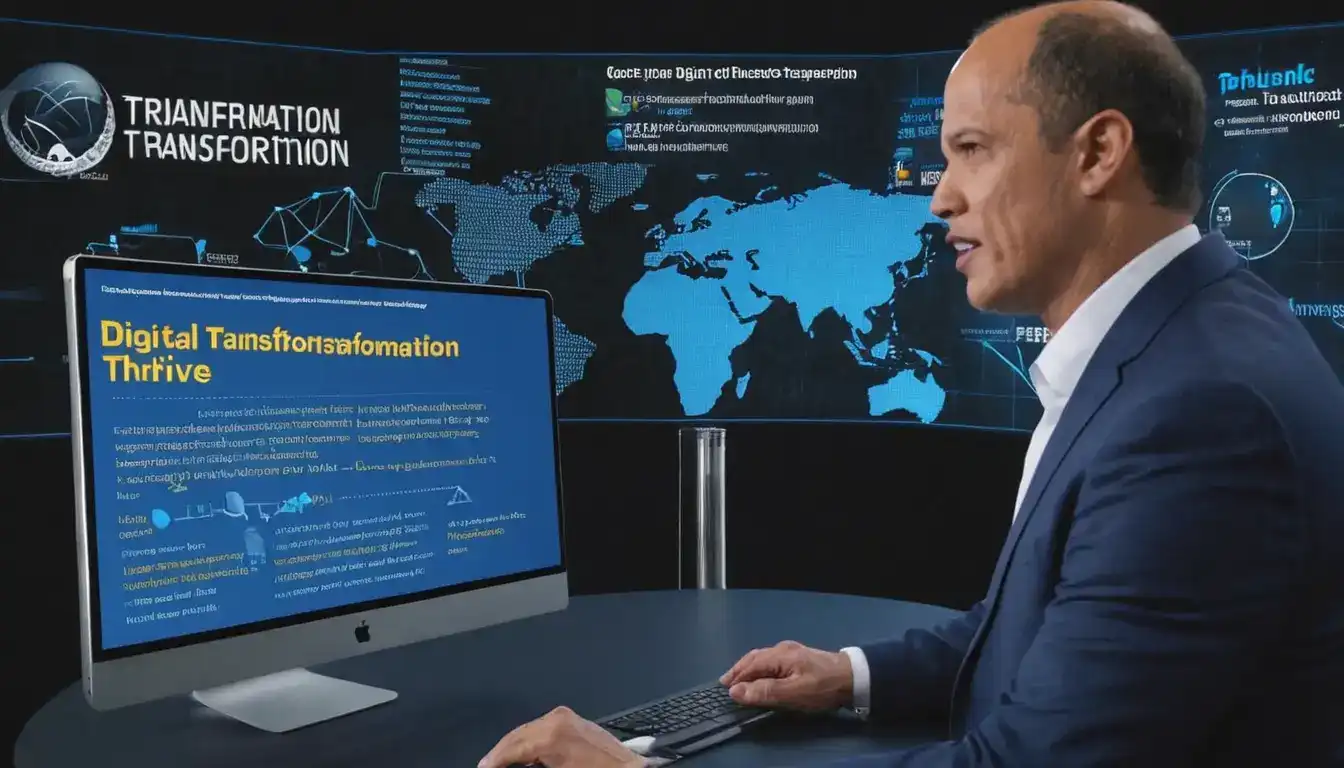
August 4, 2024
Digital Transformation: Businesses Leverage Technology to Thrive in the Digital AgeThe business world is evolving rapidly, with consumers expecting seamless digital experiences. Digital transformation involves integrating technology, focusing on customers, making data-driven decisions, and fostering innovation.
Emily Willis

August 5, 2024
Tips for Maintaining a Balance Between Work and Personal LifeAchieving a healthy work-life balance is essential for overall well-being, productivity, and happiness. Setting clear boundaries, prioritizing self-care, managing time effectively, nurturing relationships, and learning to unplug are key strategies to maintain this balance. It is important to communicate your needs effectively, seek support, and delegate tasks when necessary.
Emily Willis

June 9, 2025
Business Resilience in Uncertain TimesUnlock business resilience! Prepare for, adapt to, and overcome challenges. Transform uncertainty into opportunity and build a stronger, future-proof business.
Emily Willis
Economy
View AllUnlock global growth potential! Discover dynamic emerging markets, their rapid economic expansion, vast opportunities, and how to navigate complexities.
Read MoreGlobalization has reshaped the economic landscape, connecting countries and markets like never before. For emerging economies, this presents both challenges and opportunities. Challenges include economic vulnerability, income inequality, job displacement, and environmental impact.
Read MoreCentral banks are facing unique challenges in the current economic landscape, including rising inflation, geopolitical tensions, and lingering effects of the pandemic. They have a set of tools at their disposal, such as monetary policy, open market operations, and reserve requirements, to influence the economy.
Read MoreEntertainment
View All
August 4, 2024
The Evolution of Digital Distribution in the Music Industry: Challenges and OpportunitiesThe music industry has been transformed by digital distribution, which allows quick access to a vast catalog of music through streaming services and online stores.
Emily Willis

August 5, 2024
Classic Films: Timeless Masterpieces in the Age of StreamingClassic films may seem outdated in today's world of instant gratification and endless streaming options, but they offer enduring stories, masterful storytelling, historical insights, technical innovation, and artistic value that surpass modern offerings. While classic films face challenges such as accessibility and pacing, there are ways to overcome these obstacles, such as using streaming services, visiting local libraries, attending film festivals, and utilizing online resources.
Emily Willis

August 4, 2024
The Latest Music Trends, Artists Influencing Pop Culture, and How Digital Platforms Facilitate the Distribution of Music GloballyThe music industry is constantly changing due to consumer preferences, technology, and the influence of artists. Digital platforms have revolutionized music creation, distribution, and consumption, leading to genre fusion, the rise of independent artists, and collaborative projects. Influential artists like Billie Eilish, BTS, and Taylor Swift have shaped pop culture globally. Streaming services, social media, and direct-to-fan engagement have transformed music distribution. Digital platforms also promote cultural diversity and inclusivity, expand markets and revenue, and drive technological advancements. The industry is also focusing on sustainability and ethical practices. To succeed in the future, stakeholders must embrace digital transformation and champion inclusivity.
Emily Willis
Health
View AllRegular physical activity is crucial for maintaining long-term health and well-being. It has numerous benefits, including improving cardiovascular health, aiding in weight management, enhancing mental health, strengthening bones, boosting immune function, and promoting longevity.
Emily Willis
Quality sleep is essential for overall health and well-being, impacting physical, cognitive and emotional functioning. Lack of quality sleep can lead to a variety of health issues, including weakened immune function, heart problems, weight gain and cognitive impairment.
Emily Willis
Preventive healthcare focuses on strategies to prevent disease and maintain well-being, rather than just treating illnesses after they arise. It helps identify risk factors early on, allowing for interventions that can prevent or delay the onset of chronic diseases.
Emily Willis
Trending 🔥
View All
1
2
3
4
5
7
8
9
10
Lifestyle


Sports
View AllAugust 5, 2024
Sports for Social Good: Promoting Diversity, Inclusion, and Community Engagement
Read MoreAugust 5, 2024
The Future of Sports: Anticipating Trends, Embracing Innovation, Shaping a New Era
Read MoreTechnology
View All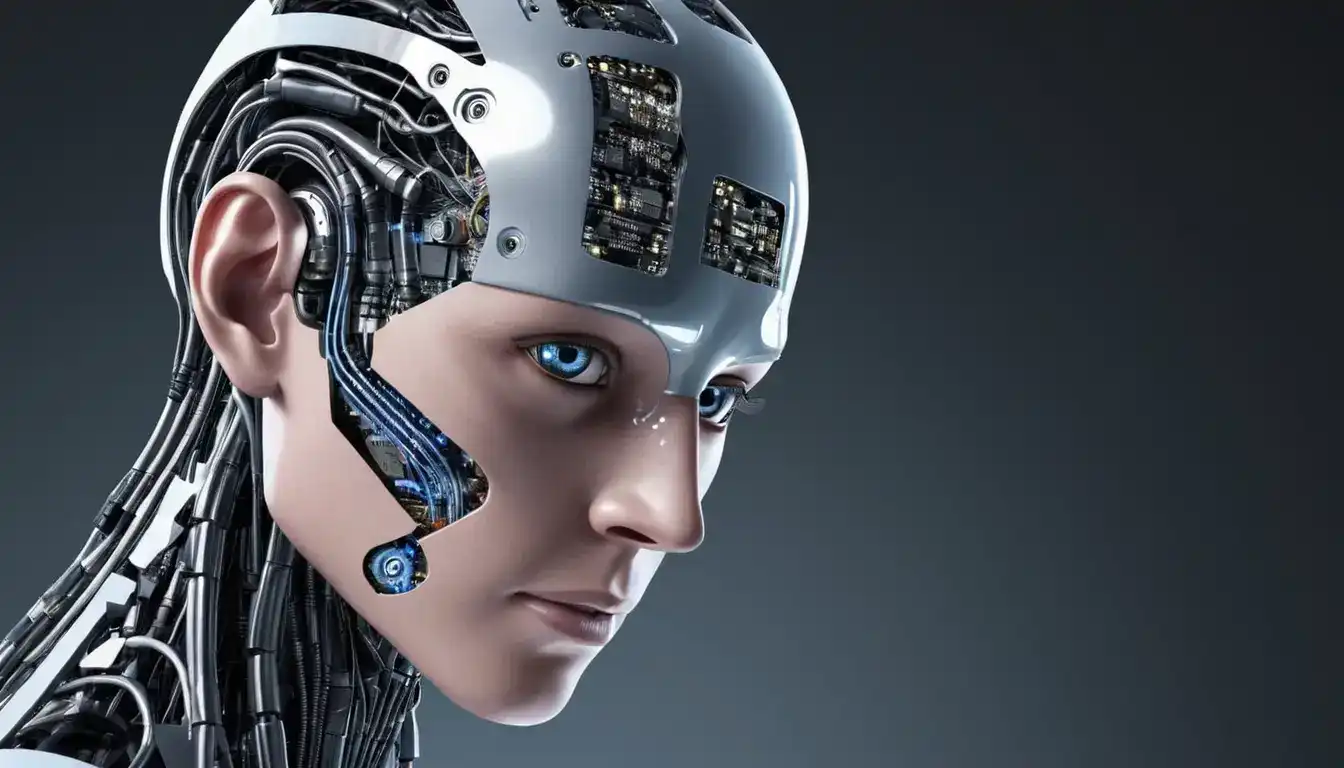
August 4, 2024
The Future of Artificial Intelligence: Opportunities and Challenges
opportunities and challenges presented by Artificial Intelligence (AI) in various sectors such as efficiency, customer experiences, healthcare, education, and economic growth. It highlights the need to address ethical considerations, job displacement, privacy issues, security risks, and regulatory challenges associated with AI.

August 5, 2024
Benefits of Using Cloud Computing for Your Business
Cloud computing has revolutionized business operations by offering cost savings, scalability, improved collaboration, enhanced security, and robust disaster recovery. It allows businesses to access services over the internet, reducing the need for physical infrastructure and providing flexibility.

August 5, 2024
AI Trend Predictions for 2024 and beyond
AI is no longer a futuristic concept, it is shaping our world at an unprecedented pace. In 2024 and beyond, AI trends are likely to dominate in various industries. Generative AI is expected to revolutionize content creation, design, and product development. In healthcare, AI will lead to personalized medicine, drug discovery acceleration, improved diagnostics, and remote patient monitoring.
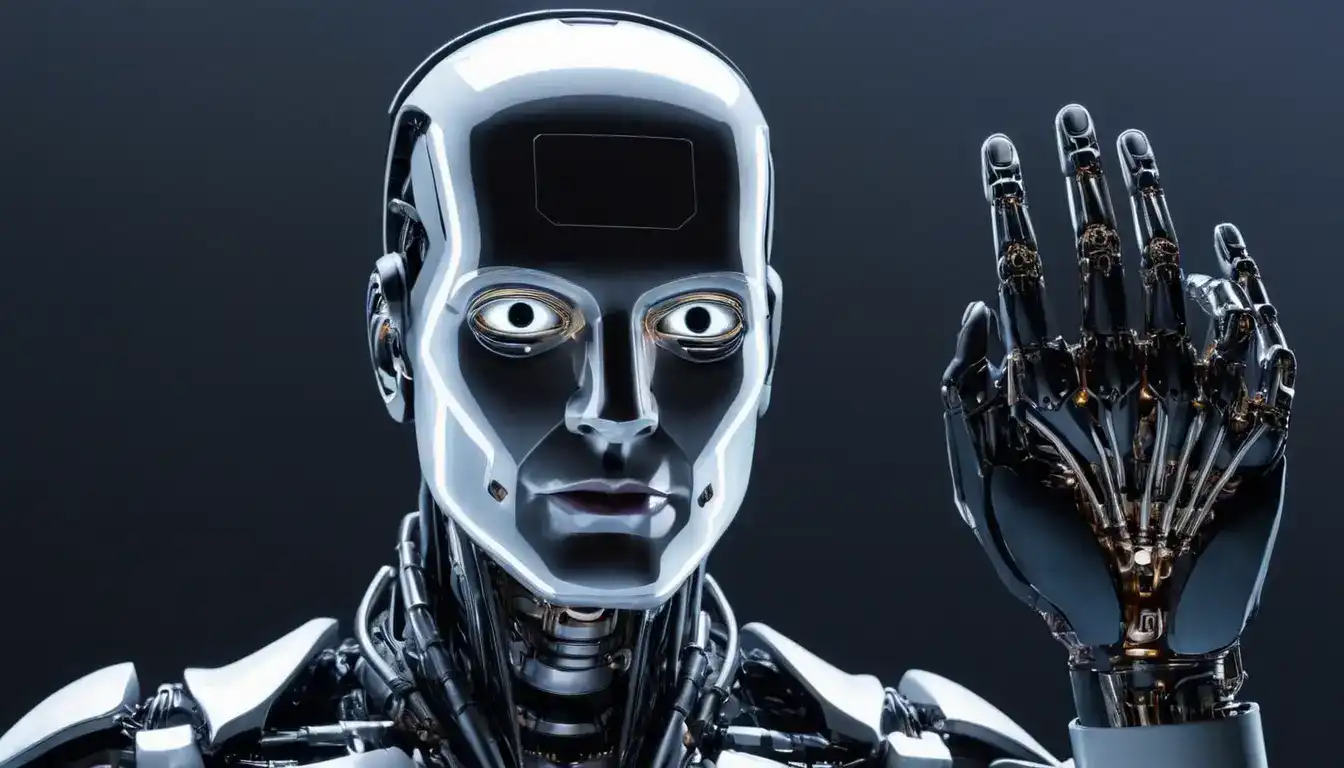
August 5, 2024
The Impact of AI on the Future of Work and Education
AI is rapidly advancing and reshaping industries, economies, and societies, especially in the areas of employment and education. In the workplace, AI is changing roles through automation and creating new job opportunities. The future of work will most likely involve collaboration between humans and AI, requiring workers to develop new skills and engage in lifelong learning.



